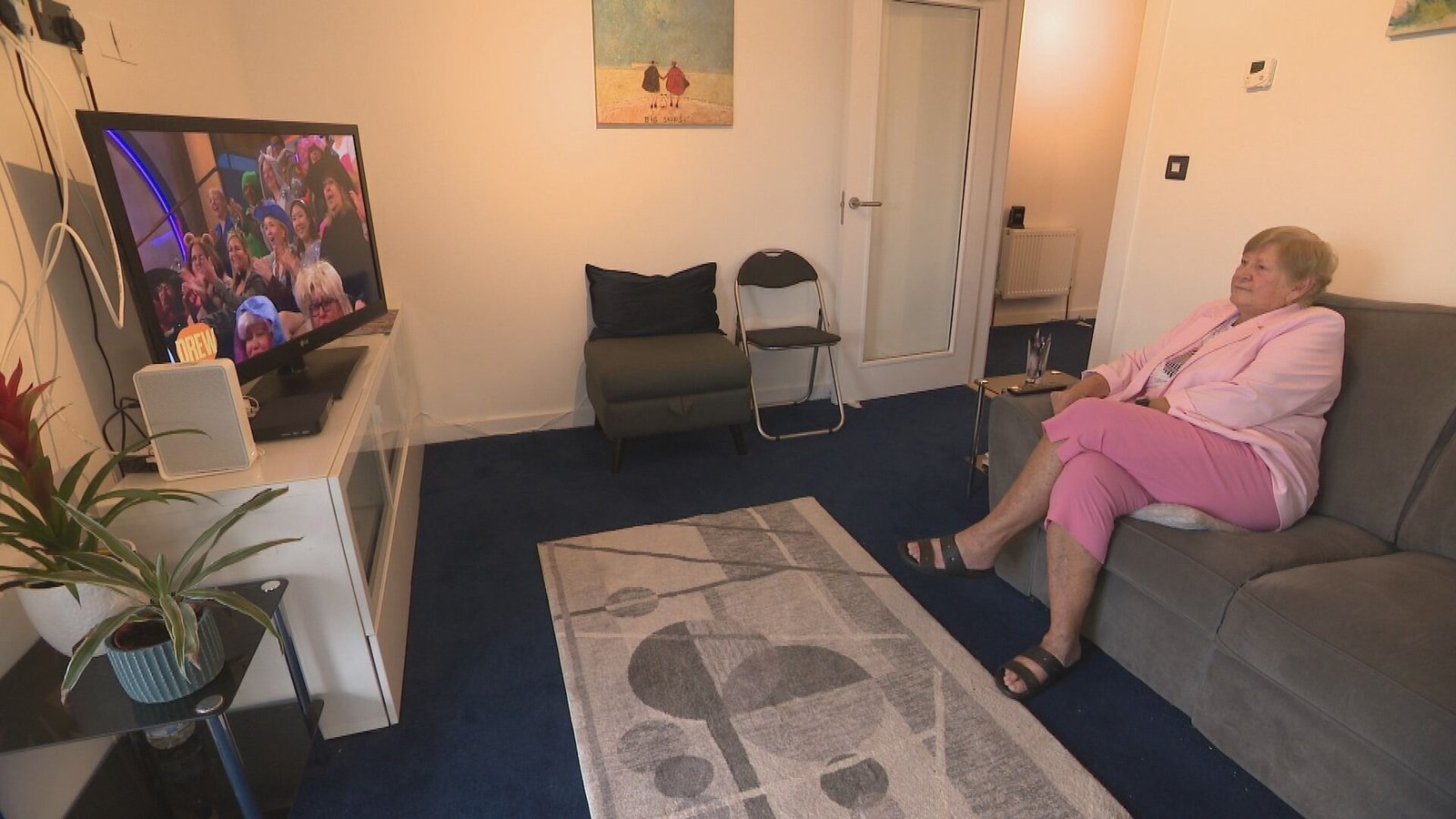World
Programme to support independent living for older people

A programme that aims to prevent thousands of older people from entering long-term residential care has been launched by Age Friendly Ireland.
Co-ordinators based in local authorities will manage support packages in housing, health, technology, energy efficiency and community integration to support independent living.
The joint health and local government programme, Healthy Age Friendly Homes, is viewed as “a best practice example” of co-ordinated support services.
Nola Watt was a participant in a pilot scheme which was launched 2021 involving over 2,000 people.
Following her husband’s death, Ms Watt struggled to maintain the three-bedroom home they had rented together.
Her landlord subsequently sold the property and when she began to search for a new home, Ms Watt faced great difficulty, so she contacted Fingal County Council.
The council’s Local Healthy Age Friendly Homes Coordinator Danielle Monahan helped the then 73-year-old find a new home which was smaller and suited her needs.
Two years on, the two women maintain a warm friendship and Danielle continues to check in on the Mulhuddart resident.
While “rightsizing” to a smaller property suited Ms Watt, others have sought assistance in other areas.
When a referral is made or when people self-refer, a local coordinator is sent to carry out a needs assessment is carried out.
Home-based assessments help identify what kind of support may be required to enable the person to continue to live independently.
While some people may choose to move to more suitable housing, there is also help available around housing adaptations and assistive technology such as age-friendly tablets or wearable alarms.
The programme also provides connections to services such as occupational therapists, social and community groups like Meals on Wheels, and transportation to hospital appointments.
National Manager of Healthy Age Friendly Homes Mark Harrington said the idea is about avoiding early entry into long-term care.
“What we’re doing is introducing wrap-around support and joining the dots for older people to help them remain in their home for as long as possible and get them re-engaged with their communities and avoid early or premature entry into long-term care,” he said.
Speaking on RTÉ’s Morning Ireland, Mr Harrington said they also “look at technology, assistive devices that we can assist people with and advice on finance and also on energy, as we know energy is becoming an issue.
“So, we help people make applications maybe for the warmer homes. So, it really is about supporting and joining all the dots for the older person, but it’s all about enabling the older person to remain in the home for as long as possible, getting them to feel and be part of their community and live with a sense of independence.”
An evaluation conducted by Maynooth University involving over 2,130 participants in the pilot phase revealed “significant improvements” in self-reported health status, quality of life, social support, and functional ability.

Around 74% of programme participants owned their home, 51% lived alone, 37% lived with a significant other and 11% lived in their own home with a family member.
More than 50% of research participants felt they had stronger levels of social support and almost four out of five participants reported having greater self-belief in their ability to respond to new or difficult situations.
Clinicians who work with older people have welcomed the national roll-out of the scheme.
Consultant Physician in Geriatric and Stroke Medicine at Tallaght University Hospital Professor Ronan Collins said people’s empowerment over their own lives as they get older and staying at home where possible is a fundamental right.
“You’ve better mental health, better well-being and you have less physical relapses if you’ve chronic illnesses, so, it’s important we empower that model.
“But that may mean a change of home as well and sometimes a change of home can benefit, and part of this programme recognises that older people may want to downsize or ‘right size’ as we call it, to empower them to lead better lives,” Prof Collins said.
Healthy Age Friendly Homes received recurring funding of €5.2m to expand from nine pilot sites to a national roll out.
It is estimated that it will result in an annual saving of €41.5 million to the State.
The programme’s key partners include the Department of Health; Health Service Executive (HSE); Department of Housing, Local Government and Heritage; Age Friendly Ireland, and the Sustainable Energy Authority of Ireland (SEAI).
Minister with Responsibility for Older People Mary Butler said she is “delighted” with the national roll-out.
“The pilot phase of the programme has demonstrated that it has and will have a positive impact on the quality of life for our older people and helps them to live at home for longer.
“It is a wonderful example of Sláintecare in action, working across multiple sectors and government departments to deliver a truly person-centred care programme that tailors support to the needs of each person,” she said.










